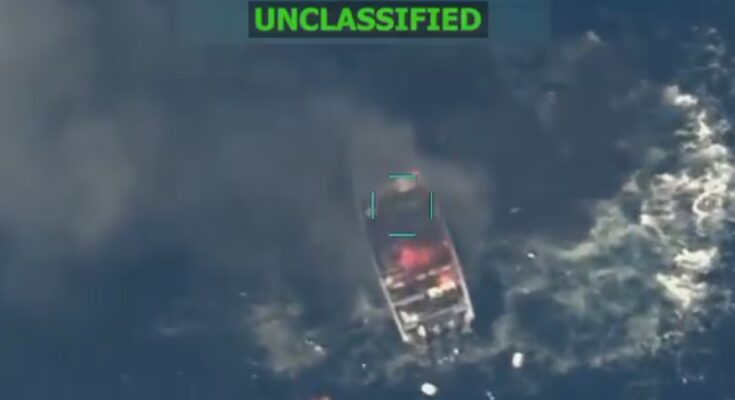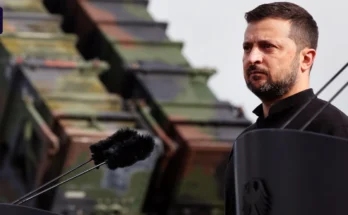In February 1979, the former Colombian president Alberto Lleras Camargo wrote an editorial in the Colombian press to respond, in his own way, to an article that the magazine time had published in those days: “The Colombian Connection”. The article, Lleras Camargo said, “grants us the dubious honor of drugging, poisoning and corrupting millions of Americans.” And then, with that precise irony that Colombian presidents have no longer had, he writes these lines: “War and drugs will stain the reputation of our compatriots in that future time. And when a senator, or a representative of the United States, or a European pedagogue, or a geographer from any part of the world needs to know something about Colombia, there he will learn of our pernicious influence on a society that is for the most part white, Anglo-Saxon and Protestant, an influence that in few years they have replaced that of France and Mexico in the world market of marijuana and cocaine, and have invented the boldest and best methods to reach the hearts of an honest and puritanical people with their ships, their planes, their mafias, their murderers, their smugglers, their mules and all the paraphernalia of the deleterious pollution of our time.
I remembered in recent days that article about the boats exploding in the middle of the Caribbean Sea and the war aircraft carriers that are supposed to be sent to fight the drug cartels. Forty-six years have passed since that clairvoyant article, and the dinosaur is still there: Latin American drugs continue to corrupt innocent gringos. “To all the terrorist thugs smuggling poisonous drugs into the United States of America, be warned: we will wipe you off the face of the earth,” Trump told the United Nations in his sheriff-like rhetoric. (We’ll make you disappear from existence, (he said in his own language: my translation fails to faithfully reproduce the tone of the terrorist thug.) And then he continued: “Every boat we sink carries drugs that could kill more than twenty-five thousand Americans.” Which is a lie, of course: as Jonathan Blitzer recalled in New YorkerOverdose deaths in the United States are due to fentanyl produced in Mexico, not cocaine. No, attacks on boats are not intended to protect anyone from anything. They’re looking for something else. What? We already know it: US Secretary of Defense Pete Hegseth has just announced an operation to “expel narco-terrorists” from the Western Hemisphere and protect “our homeland from the drugs that are killing our people.”
(Parenthesis: Hegseth, of course, is the ideal official in Donald Trump’s world: a textbook narcissist accused of sexual harassment, financial dishonesty and alcohol problems. Not only that: before commanding the most powerful army in the world, Hegseth was host of the frivolous programs of Fox, that cable television whose relationship with the truth is merely casual and whose venal journalists are sounding boards for every propaganda, disinformation or lie that Hegseth has been one of the ass-kissers more fierce than Trump, despite having once mocked him, his lack of knowledge of international politics and the multiple excuses with which he avoided the draft during the Vietnam War. I have always thought that Trump also likes this: he likes to appoint to positions of power those who in the past have been his harshest critics: Marco Rubio is not the only example of the perverse pleasure in demonstrating that everyone is venal, that everyone has a price.)
The operation just announced by Hegseth cannot surprise anyone, since it began not with this announcement, but with boats. Since last September, the United States army has murdered 80 Latin American citizens, accusing them, without any evidence, trial or sentence, of being narco-terrorists. We have all seen the images: the boat advancing on the sea, the burst of light, the remains impossible to identify. These are extrajudicial executions of foreigners carried out in international waters, which in other times would have aroused at least some indignation; but in Donald Trump’s lawless world, under the savage rule of his thuggish government, they don’t matter, at least not in public life. And the most terrifying thing is that they probably have no consequences even in our private lives: we have all seen the attacks on boats like in a video game, but without noise or colors, and with part of our mind we are aware that there, on the gray screen, remains of human bodies are floating or sinking next to the remains of the boat and the drugs it was carrying.
To be clear: yes, I also believe that some boats were transporting drugs. But we are very bad if I have to explain why this, in this case, is the least. Anyway, it doesn’t matter. There will also be some who are okay with killing human beings for what we suspect they are or, worse yet, what we assume they will do: these men died because they were drug traffickers according to Trump, and others will die in the near future because Trump’s word will be enough to kill them. And we don’t know where to start complaining: naively complaining about the extrajudicial execution, naively complaining about the absence of a fair trial, naively complaining about the violation of so many civil rights and so many constitutional guarantees in the same act of unpunished violence. Or regret the easy lie of the Trump government, which justified the murders with the argument of national defense and the war against “those drugs that are killing our people”. There are so many levels of hypocrisy in those words that you really don’t know where to start peeling back the onion layers.
I repeat: the drugs that kill most victims do not arrive by sea from Latin America, but are manufactured, like fentanyl, in other places. I repeat: no one in the Trump government really cares that “our people” put traces of Latin American cocaine in their bodies; The hobbies of some of the people closest to Trump are well known, and political satire shows have been playing with them for years. And finally: no one can fail to know, at this point, that the attack on the boats, the declaration of war on the Venezuelan cartels and the presence of the Gerald Ford aircraft carrier in the Caribbean are nothing other than the latest incarnation of what has always been the war on drugs: a form of political control by foreign governments, at best, and, at the rest, a grotesque form of imperialist interventionism. It has already happened in Panama and, when it was not a question of cocaine cartels but of agrarian reforms with bananas as a backdrop, it happened in Jacobo Árbenz’s Guatemala.
Yes, we’ve seen this movie before. We already know what is happening: a political upheaval that will leave destruction. We already know what isn’t coming: a solution to the drug problem. What matters is that the problem persists.
It’s the most useful problem in the world.


